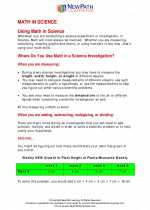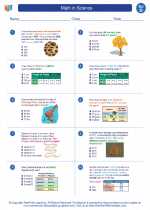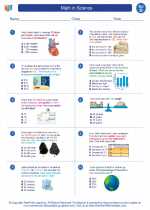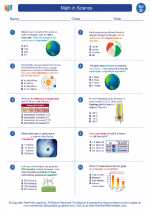Pathology
Pathology is the study of diseases, their causes, processes, development, and consequences. It involves the examination of tissues, organs, bodily fluids, and autopsies to understand the nature and causes of diseases.
Types of Pathology
- Anatomical Pathology: Focuses on the examination of tissues and organs to diagnose diseases.
- Clinical Pathology: Involves the analysis of bodily fluids and tissues to diagnose diseases and monitor treatment.
- Forensic Pathology: Deals with determining the cause of death in cases of suspicious or unnatural deaths.
- Molecular Pathology: Examines changes in the structure and function of genes at a molecular level to understand disease processes.
Key Concepts in Pathology
- Etiology: The study of the causes of diseases.
- Pathogenesis: The development and progression of diseases within the body.
- Morphology: The study of the structural changes in cells and tissues associated with disease.
- Diagnosis: The identification of a disease through clinical and laboratory tests.
- Prognosis: The likely outcome or course of a disease.
Importance of Pathology
Pathology is crucial for understanding diseases, developing treatment strategies, and monitoring the progress of diseases in patients. It also plays a vital role in research and the development of new medications and therapies.
Study Guide
To study pathology effectively, consider the following tips:
- Understand the basic concepts of anatomy and physiology as they form the foundation of pathology.
- Study the various types of diseases, their causes, and pathological processes.
- Focus on understanding the microscopic and macroscopic changes that occur in diseased tissues and organs.
- Practice interpreting laboratory results and diagnostic tests commonly used in pathology.
- Review case studies and real-life examples to understand the practical application of pathology in diagnosing and treating diseases.
- Stay updated with the latest advancements and research in the field of pathology.
By mastering the principles of pathology, you will gain a comprehensive understanding of diseases and their impact on the human body, laying the groundwork for a career in medicine, research, or healthcare.
.◂Science Worksheets and Study Guides Fourth Grade. Math in Science
Study Guide Math in Science - 4th grade
Math in Science - 4th grade  Worksheet/Answer key
Worksheet/Answer key Math in Science - 4th grade
Math in Science - 4th grade  Worksheet/Answer key
Worksheet/Answer key Math in Science - 4th grade
Math in Science - 4th grade  Worksheet/Answer key
Worksheet/Answer key Math in Science - 4th grade
Math in Science - 4th grade 

 Worksheet/Answer key
Worksheet/Answer key
 Worksheet/Answer key
Worksheet/Answer key
 Worksheet/Answer key
Worksheet/Answer key

The resources above cover the following skills:
Science as Inquiry and Process (SA1, SA2, SA3)
The student develops an understanding of the processes of science by asking questions, predicting, observing, describing, measuring, classifying, making generalizations, inferring and communicating.